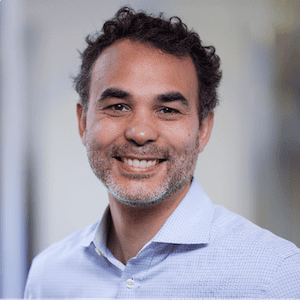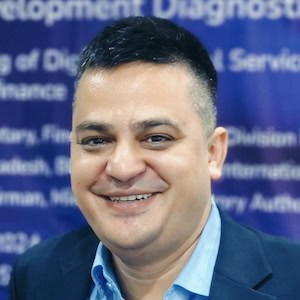-
The Risks of Government-Led Financial Inclusion: Why agent networks in India need to move beyond government mandates
Over the years, the government of India has facilitated financial access by promoting account opening through various programs. And, at first glance, some of the numbers associated with the government's inclusion mandates look good. But a more detailed look reveals a bleak picture that includes high agent attrition and low account activity rates.
- Categories
- Impact Assessment
-
NexThought Monday – Does Anti-Poverty Work Actually … Work?: Three questions every ‘pro-poor’ group needs to ask themselves
How can we fully distinguish pro-poor programs from those that are not? Leading thinkers of the “social performance” movement in microfinance (seeking social as well as financial return on investment) have hit upon a truth that applies to all anti-poverty work: Truly pro-poor programs provide the right answer to each of three straightforward questions.
- Categories
- Uncategorized
-
Weekly Roundup 9-11-15: Accelerators for VCs, Ugandan-made EVs and other rare ‘unicorns’ of global development spotted
This week's developments featured a novel tool to help fix the lack of local venture capital and investment expertise in social enterprises, a new era for M-PESA, a new health care alliance and hybrid car in Africa, and a fascinating debate about what type of entity might become the continent’s first unicorn.
- Categories
- Health Care, Social Enterprise
-
Human Waste as a Value Chain: ‘Sustainable sanitation’ startup has plans to expand throughout Peru and, eventually, abroad
Lima, Peru, is one of the driest capital cities in the world. That's one reason x-runner, a social enterprise, has had success selling urine-diverting dry toilets and coordinating a for-pay sanitation system for subscribers in the slums there. Another reason might be its trial and error, local-oriented approach.
- Categories
- Health Care, Social Enterprise, Technology
- Tags
- infectious diseases, waste
-
Rising Star or Red Flag?: South Africa’s financial inclusion growth raises questions for the entire industry
South Africa placed second in a recent Brookings Institute study comparing financial inclusion in 21 developing countries – surpassed only by Kenya. But though this has led to celebration in some quarters, there’s a troubling aspect to these findings. Illana Melzer argues that the risks of burgeoning financial access and usage are too significant for beneficiaries, development organizations and donors to ignore.
- Categories
- Education, Impact Assessment
-
Different Worlds: Why digital payments should not be regulated as an offshoot of banking
Digital payments is emerging as its own field of expertise - and though the two sectors are often lumped together, it differs substantially from banking. For instance, banks prosper greatly from managing risk and little from network effects, while payments providers typically are just the opposite. This leads to fundamentally different outlooks between the practitioners in each field, and necessitates different regulatory approaches.
- Categories
- Uncategorized
-
NexThought: From Soap to Cassava – Mentoring Makes the Difference
Cynthia Ndubuisi Mene’s biodegradable liquid soap business, Ever Glow, enjoyed early success in her home country of Nigeria. But as she looked to expand, she sought the guidance of a mentor and found one through the MicroMentor.org network. Her relationship with a former UPS president has not only helped her scale EverGlow, but has led to new business opportunities.
- Categories
- Uncategorized
-
A Short Holiday for the NB Team:
So that NextBillion's editorial team can enjoy the Labor Day holiday here in the United States, we are taking a little break. NextBillion will resume publication on Tuesday, Sept. 8.
- Categories
- Uncategorized










